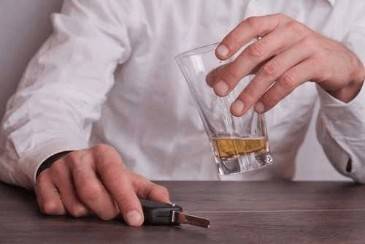In Colorado, if you are being prosecuted for Driving Under the Influence of Alcohol then you are likely being charged under two different crimes: Driving Under the Influence of Alcohol and Driving with Excessive Alcohol Content, sometimes referred to as “DUI Per Se.” Most people understand what a DUI means but are unfamiliar with what a Driving with Excessive Alcohol Content (DEAC) means. The following addresses the fundamentals of a Driving with Excessive Alcohol Content charge.

“Per se,” in the context of criminal law, means an act which is
inherently illegal. In Colorado, DEAC or DUI Per Se means a person drives a motor vehicle when the person’s BAC is 0.08 or more within two hours of driving. [See C.R.S. § 42-4-1301(2)(a).] DEAC is an unclassified misdemeanor. If you are convicted of DEAC, 12 points will be reported to the DMV and assessed against your Colorado driver’s license. In Colorado, if you accumulate 12 points in one calendar year you will face a license suspension. Additionally, the DMV will likely revoke a person’s driving privileges if the chemical test was completed within 2 hours of driving a motor vehicle and the BAC was greater than 0.08.
A chemical test resulting in a BAC above 0.08 does not mandate that a person be convicted of DEAC. In the case of Barnes v. People [735 P.2d 869 (1987)], the Colorado Supreme Court addressed whether a chemical test which produces a result above the legal limit creates a mandatory presumption that a person is under the influence of alcohol. When a person is charged with a crime, he or she holds the presumption of innocence. A jury must view the person as innocent unless the State of Colorado produces credible evidence which establishes guilt beyond a reasonable doubt. A mandatory presumption of intoxication would eradicate the presumption of innocence because jurors would be forced to find a person was intoxicated based solely upon the test results.
In the Barnes case, the Court rejected a mandatory presumption of intoxication and held that the chemical test can only create a permissible inference that a defendant was under the influence of alcohol. This is significant because it means that a person can challenge the accuracy of the test result to rebut the inference of intoxication. In Colorado, the importance of this cannot be understated. In the last 5 years, multiple laboratories have stopped conducting blood alcohol analysis due to credibility issues with the laboratories.
When facing a DEAC charge, you need a knowledgeable and experienced law firm on your side. Our team at The Bussey Law Firm, P.C., led by attorney Timothy Bussey, understands the intricacies of the law surrounding a DEAC charge and the science that goes into the chemical tests. Attorney Bussey has achieved the designation of Lawyer-Scientist by the American Chemical Society. You can read more about the Lawyer-Scientist designation here.
Contact The Bussey Law Firm, P.C. Today
We are committed to litigating all steps of a case to ensure that you are not railroaded by scientific inaccuracies and overzealous prosecutors. If you or a loved one is facing a DEAC charge call today to set up an appointment and let us start fighting for you. The number to dial is (719) 475-2555.
